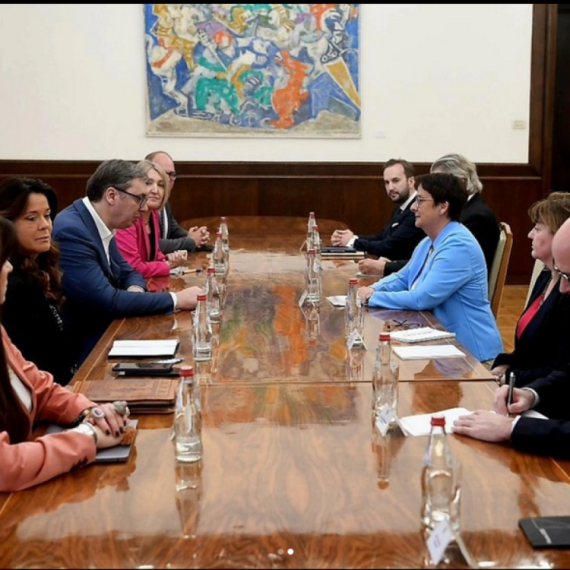Main challenge - control of 2013 expenditures
The main challenge and one of the main tasks of the Ministry of Finance and Economy next year will be control of expenditures in Serbia's 2013 budget.
Monday, 03.12.2012.
18:13

BELGRADE The main challenge and one of the main tasks of the Ministry of Finance and Economy next year will be control of expenditures in Serbia's 2013 budget. The ministry's state secretary, Vlajko Senic, also said on Monday, addressing the 4th National Budget Forum, that the 2013 budget was projected in a realistic manner. Main challenge - control of 2013 expenditures According to him, this is the case "although considerable differences remained between the Ministry of Finance and the Fiscal Council in terms of projection of expenditures for subsidies, interest rates, and purchase of goods and services". In 2013, these and other expenditures will be in the focus of attention, he said, adding that the ministry has accepted quarterly control in realization of the budget, which was proposed by the Fiscal Council. Stressing the budget does not offer solutions to all problems in the mid-run, Senic explained that for this reason the government has also adopted the 2013 Fiscal Strategy with projections for the coming two years. He said that the public debt will certainly not return to the prescribed limit of 45 percent of GDP before 2018, and it is realistic that this will happen in 2020. Vladimir Vuckovic, member of the Fiscal Council, said that the 2013 budget is basically correct, adding that it is possible for the revenues to be as planned, while in terms of expenditures there are certain risks. He underlined that the additional risks include the fact that the fate of the Smederevo Steel Mill is unknown and that it may need additional funds, and the possibility of giving up on the planned indexation of salaries in the public sector and pensions. The budget will be successful or unsuccessful depending on whether the measures planned for the next year will create basis for further reforms in 2014 and 2015. Tanjug
Main challenge - control of 2013 expenditures
According to him, this is the case "although considerable differences remained between the Ministry of Finance and the Fiscal Council in terms of projection of expenditures for subsidies, interest rates, and purchase of goods and services".In 2013, these and other expenditures will be in the focus of attention, he said, adding that the ministry has accepted quarterly control in realization of the budget, which was proposed by the Fiscal Council.
Stressing the budget does not offer solutions to all problems in the mid-run, Senić explained that for this reason the government has also adopted the 2013 Fiscal Strategy with projections for the coming two years.
He said that the public debt will certainly not return to the prescribed limit of 45 percent of GDP before 2018, and it is realistic that this will happen in 2020.
Vladimir Vučković, member of the Fiscal Council, said that the 2013 budget is basically correct, adding that it is possible for the revenues to be as planned, while in terms of expenditures there are certain risks.
He underlined that the additional risks include the fact that the fate of the Smederevo Steel Mill is unknown and that it may need additional funds, and the possibility of giving up on the planned indexation of salaries in the public sector and pensions.
The budget will be successful or unsuccessful depending on whether the measures planned for the next year will create basis for further reforms in 2014 and 2015.

































Komentari 0